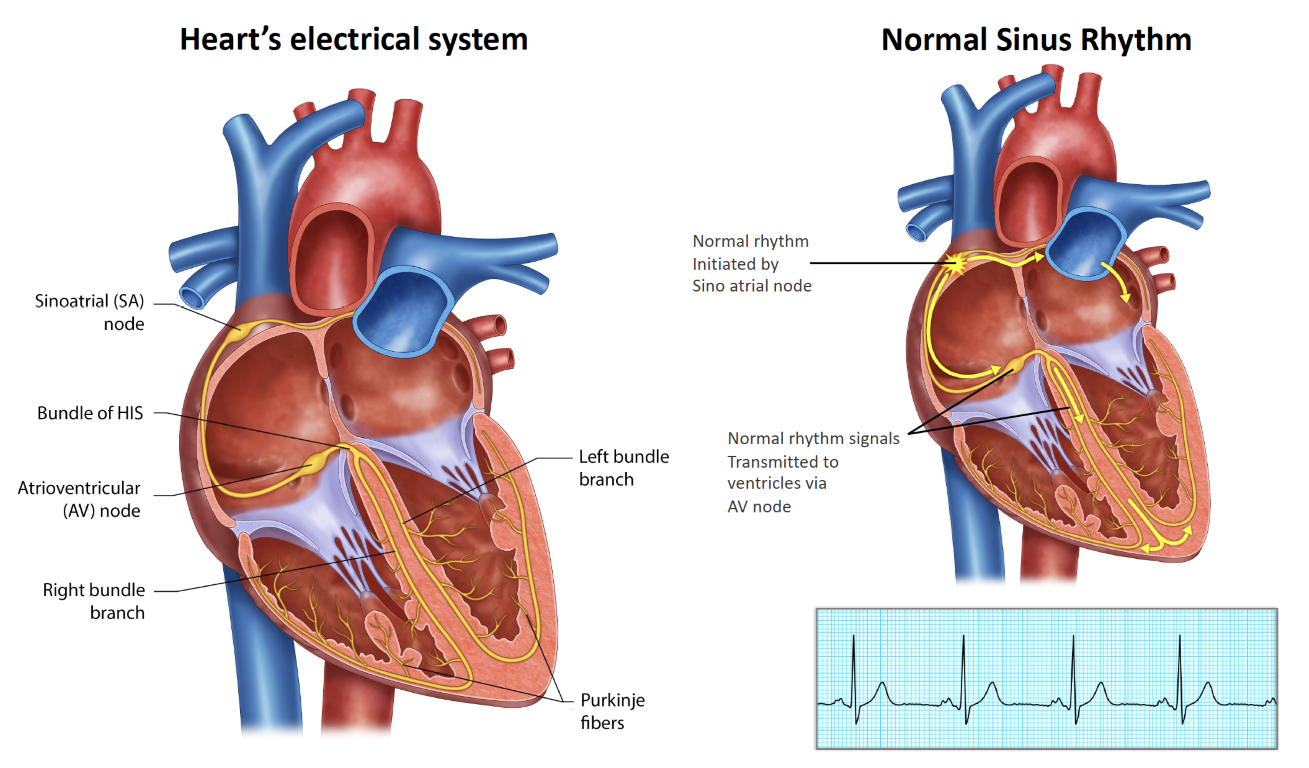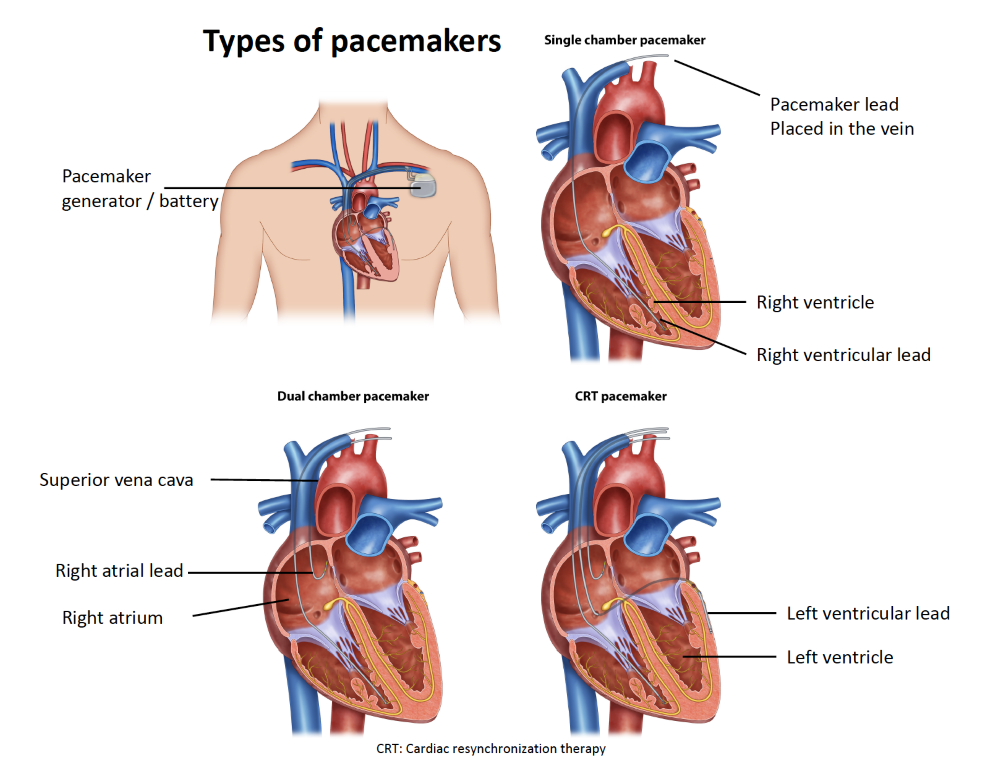Bradyarrhythmia
What is bradyarrhythmia?
Bradyarrhythmia, also known as bradycardia, is a condition characterized by a slow heart rhythm. When the heart rate falls below 60 beats per minute, it is considered bradycardia. It is important to note that normal heart rate can vary depending on factors such as fitness level, the time of day and activity levels. In many cases, a slow heart rate can be completely normal, especially during night-time when individuals are asleep. In young and physically fit individuals, it is not uncommon for the heart rate to be very slow at rest and during the night, and this is generally not a cause for concern.
Why is bradyarrhythmia a concern?
In certain individuals, the electrical system responsible for regulating the heart’s rhythm may not function properly. This can result in abnormalities such as slow or delayed electrical impulses, or the failure of impulses to transmit effectively from the atria (the heart’s control centres) to the ventricles (the heart’s pumping chambers). These abnormalities can occur spontaneously, without warning, or they may gradually worsen over time. Factors such as medications can also contribute to these disturbances.

Conditions associated with slow heart rhythms include “sick sinus syndrome,” “sinus node dysfunction,” “chronotropic incompetence,” and “heart block.” It’s important to note that the term “heart block” refers specifically to a blockage or delay in the heart’s electrical communication system and should not be confused with blockages in the heart’s arteries.
If you meet the criteria for these conditions and experience slow heart rhythms, you may be a candidate for a pacemaker, which can help regulate and normalise your heart’s electrical activity.
What are symptoms of bradyarrhythmia?
Slow heart rhythm, or bradycardia, can lead to various symptoms such as sudden dizziness, fainting, loss of consciousness, reduced ability to exercise, or shortness of breath. However, it is important to note that death directly caused by slow heart rhythm is rare. While bradycardia can be concerning and may significantly impact a person’s quality of life, it is typically not a life-threatening condition on its own. Nonetheless, it is important to seek medical evaluation and appropriate treatment if you experience symptoms related to slow heart rhythm.
Are there different types of heart block?
Yes, there are 3 main types:
First-degree heart block: This refers to a prolonged PR interval, which is the time it takes for information to travel from the atria to the ventricles. Normally, the PR interval is less than 200 milliseconds.

Second-degree heart block: In this type, the communication between the top and bottom chambers of the heart experiences a progressive delay, leading to occasional dropped beats before the rhythm resets and starts again. This specific pattern is referred to as Wenckebach and can be a normal occurrence in many individuals, particularly during night-time. Sleep apnoea is often considered as a potential contributing factor. In certain instances, the conduction deficit may be consistent, resulting in a pattern where one beat is transmitted to the bottom chamber for every two beats in the top chambers, known as 2:1 heart block.
Third-degree AV block: Also known as complete heart block, this occurs when the communication between the top and bottom chambers of the heart is completely severed. As a result, the top and bottom chambers beat independently of each other. The bottom chamber usually enters a slow backup rhythm called a junctional rhythm, which is insufficient for normal activities.
What are the treatment options for bradyarrhythmia?
The primary approach to managing symptomatic bradyarrhythmia involves discontinuing any medications that may be causing the condition and considering the placement of a pacemaker.

It’s important to note that while a pacemaker can address certain symptoms, it may not alleviate all of them. For further details, please refer to the section on pacemakers.




